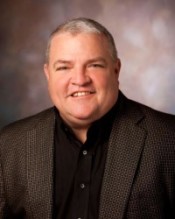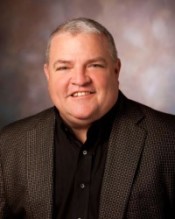For years, Blue Cross and Blue Shield of Georgia has maintained its dominance as the state’s No. 1 health insurer. Its membership now approaches 3 million members — in a state with slightly more than 10 million people.
The company has also built a reputation as a bruising adversary in contract negotiations and pay disputes with hospitals and doctors.
The new president of Blue Cross, though, says he wants to change that image.
In an interview last week with GHN, Jeff Fusile said, “We have a long way to build the trust you need to build up’’ with medical providers.
Fusile, who replaced Morgan Kendrick in November, said Friday that he has some payment ideas that could prove beneficial to physicians.
One involves offering incentives for doctors to participate in encouraging wellness among their patients. Currently Blue Cross pays wellness companies to manage this work, which typically involves promoting physical activity, better nutrition, smoking cessation and stress management.
But instead of Blue Cross paying these companies, Fusile said, “Why can’t the provider earn that money? I believe it’s more effective through the provider.” The idea, he added, “is in its infancy.”
Fusile also said the company is contemplating a plan to make regular lump sum payments to doctors and hospitals, perhaps twice a month, prior to services being rendered. “It will smooth out providers’ and our cash flow,’’ he said.
The best outcome from better relationships with doctors, he said, would be to have them say to a patient, “I’m glad you’ve got Blue Cross [insurance].”
Officials of the hospital industry point to protracted, frustrating battles with Blue Cross on contracts involving hospitals such as Piedmont, Grady and Northeast Georgia.
The Medical Association of Georgia, the leading physician association in the state, said relations between physicians and Blue Cross “have been strained” in the past.
Yet Donald J. Palmisano Jr., executive director of MAG, said Monday that the relationship is improving.
“For example, Blue Cross and Blue Shield has established a physician advisory committee that is meeting with MAG on a regular basis to address a number of key issues, including customer service and claims and pay,” Palmisano said. “MAG has seen a noticeable difference in the way that Blue Cross and Blue Shield interacts with physicians in the last year, a trend we are cautiously optimistic will continue in 2016 and beyond.”
Fusile, in his interview with GHN, commented about several other health care topics.
The Cigna merger: The pending merger of Blue Cross’ parent, Anthem, with Cigna is expected to close in the third quarter of this year, he said. Fusile added that the state insurance department has not yet set a date for a hearing on the merger in Georgia.
Insurance exchange: While UnitedHealthcare recently said it may drop out of the state’s health insurance exchange in 2017, Fusile said Blue Cross remains committed to the individual coverage market, and has no plans to exit the Georgia exchange.
Narrow networks: Employers are looking to keep health care more affordable, Fusile said, adding that more limited networks of providers may accomplish that goal. He called them “value networks” and said that compared with those of other insurers, Blue Cross’ networks are not so narrow.
Inaccurate provider directories: Insurer directories of health care providers that are out of date “are an industry issue,’’ he said. Consumers “get caught in the middle,’’ he added. “There’s an obligation on both parts . . . to correct directories.”
Rural hospitals: Hospital closures in rural Georgia “are sad and harmful to that community.” He said it is an important issue to resolve.
Medicaid expansion: Fusile noted that adding more people to the Medicaid rolls through expansion, which Georgia has declined to do, “is a political hot topic.’’ At the same time, he said getting money into communities that need it would help them greatly, through whatever mechanism the state pursues.
Virtual doctor visits: Blue Cross, like other organizations, is offering video appointments with doctors via smartphone or computer. “It gets people the help they need sooner, and it’s more convenient,” he said.



